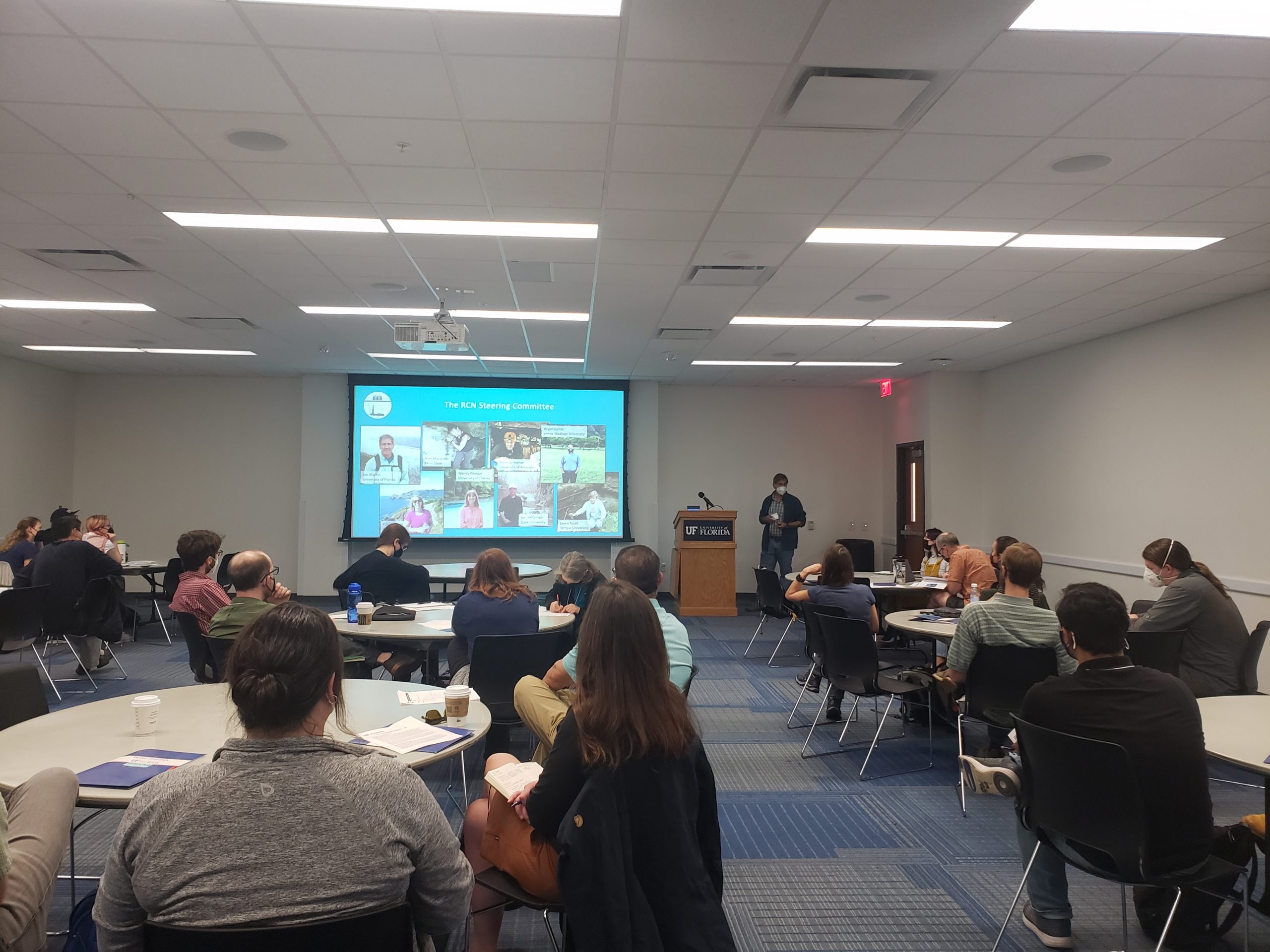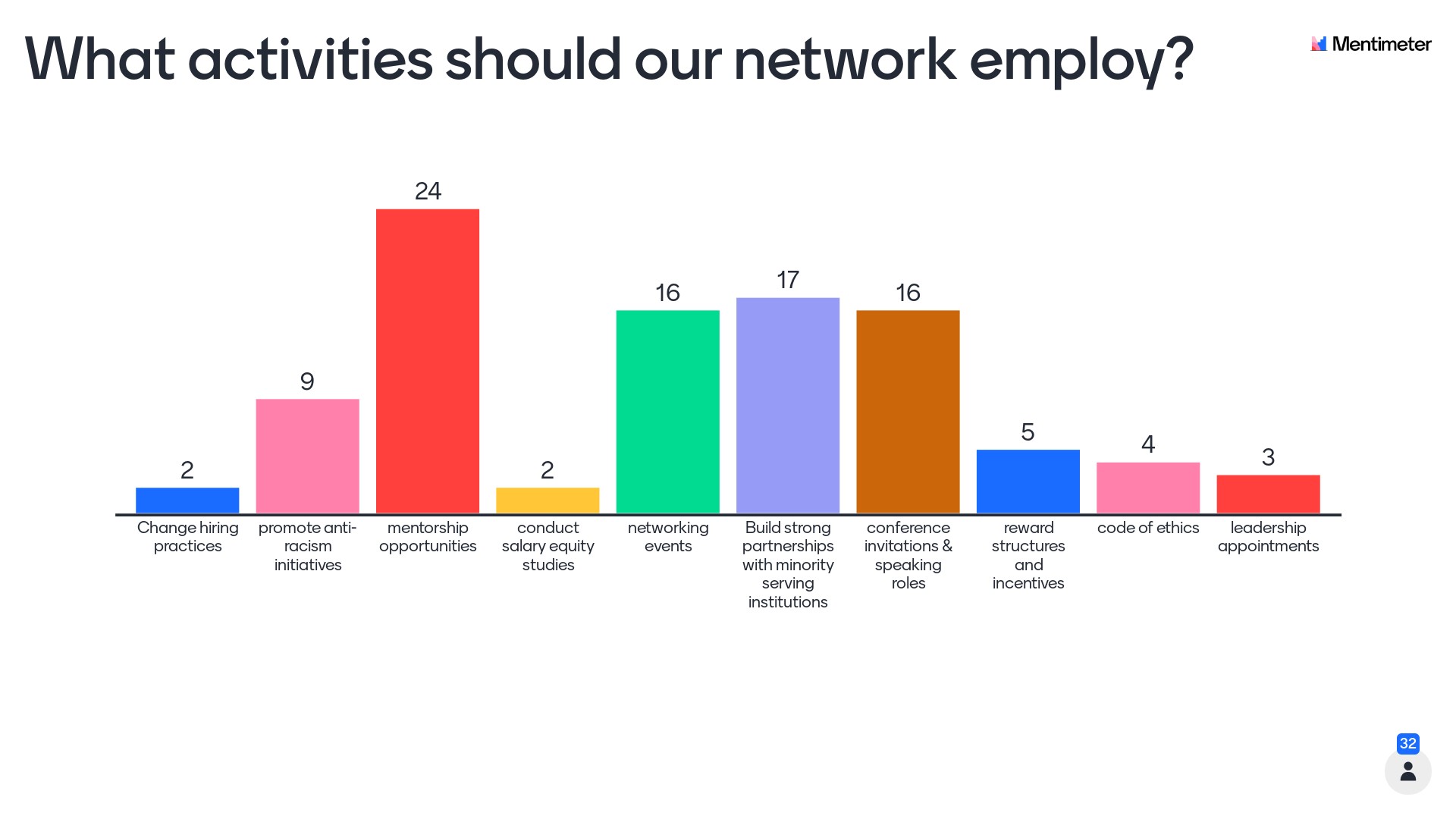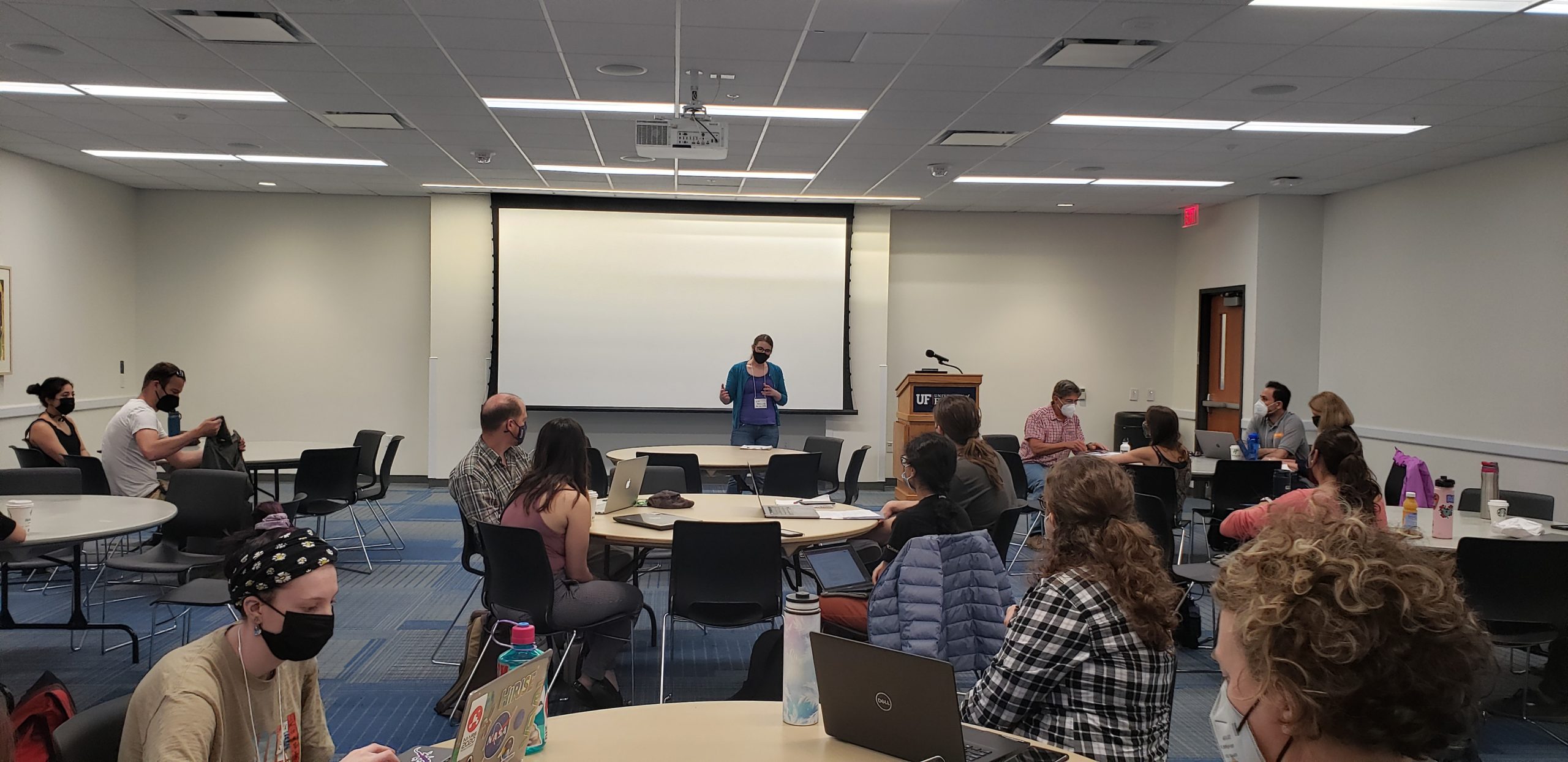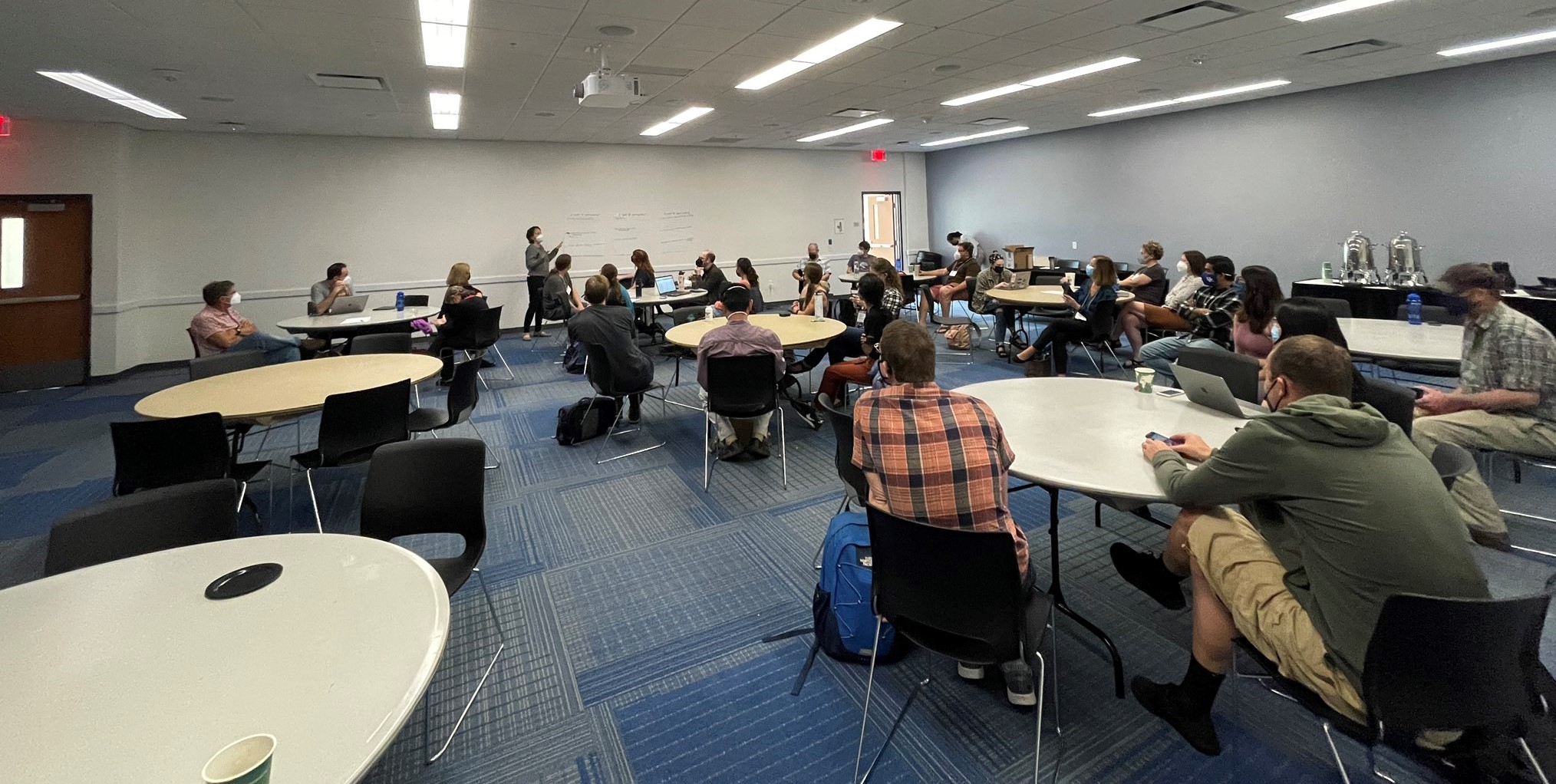Workshop Objectives
The three-day Workshop aimed to enhance networking opportunities among the RCN participants; provide an opportunity for the working groups to advance their goals to develop review papers, and compile and analyze legacy datasets; and to develop and improve activities that will foster diversity and inclusion in the network and the Critical Zone Science community.
Workshop Participants
The workshop was attended by 39 participants from across 25 U.S. and Canadian institutions. Participants included undergraduate and graduate students, Post Doctoral Associates, faculty from diverse career levels, and scientists from governmental agencies who represented a range of disciplines: geology, hydrology, ecology, microbiology, ethnoecology, geochemistry, sustainability, and others.
Workshop Achievements
Working Groups
- The Biological, Chemical and Physical Processes Working Group is developing plans for legacy data synthesis in two topical areas, one of which relates to carbon and energy flows through the carbonate critical zone and the other to data compilations in Hydroshare related to nutrient cycling within the carbonate critical zone. Goals of these data syntheses include evaluations of energy gradients, both thermal and chemical, across sites with distinct carbonate critical zone characteristics and to evaluate relative exports of carbonate from across the gradient of silicate and carbonate mineral dominated critical zone.
- The Rates and Times Working Group will aggregate legacy data in Hydroshare to evaluate how carbonate systems can be used as a bellwether of climate and land use change. The group has developed hypotheses that could be tested with available data. One is that the relative contributions of matrix and conduit flow are influenced by the type of karst: younger systems and systems on the silicate-carbonate continuum will have more matrix contributions. This hypothesis will drive research on comparisons across many sites in contrast with the current common practice of research on a single site. A second hypothesis is that when carbonate systems respond to land use and climate change, a threshold exists where transport, weathering, and related processes are faster in carbonate relative to silicate-dominated systems. A third hypothesis is that carbonate systems experience more rapid and severe salinization due to anthropogenic activities. Various members of the working group will lead efforts for data synthesis and initiate writing of synthesis papers that will test these hypotheses.
- The Boundaries and Scales Working Group is developing legacy data collection protocols to evaluate how the silicate-carbonate mineralogy spectrum in the critical zone affects subsurface hydrologic connectivity and its ability to transport weathering products. The legacy data will also be used to evaluate if surface topography and density of closed surface drainage basins can be used as a proxy for the magnitude of subsurface flow. The group will start with a US wide evaluation of data, but will synthesize specific regions depending on data availability. The goal of these activities will be development of a review paper describing differences in subsurface connectivity.
- The Critical Zone and Society working group has initiated writing a synthesis paper relating karst features to human activities since the Last Glacial Maximum around the world, with specific sites in the Caribbean, Southeast Asia, Central America, eastern continental US and southwestern continental US. Each area will include descriptions of site characteristics including rock age, composition, cave characteristics, as well place based and indigenous knowledge of the karst features. An outline of the paper has been drafted with co-authors assigned to writing various sections of the paper.
Activity Groups
Based on the Working Groups discussions a series of Activities Groups were suggested. Workshop participants indicated the group they would be interested in supporting. A list of the groups and participants can be found here. These groups along with the Working Groups will be the foundation of the next steps for the RCN
Workshop Structure and Activities
Monday April 4
Welcome and introduction to workshop
Working Group discussions: Break out discussions to identify goals for WGs, both short term (at this workshop) and long term (remainder of the RCN). Based on past responses from WG participants, goals may include:
-
-
-
- Network to develop potential papers and proposals
- Identify key research questions as seeds for proposal preparation
- Identify legacy data for answering questions
- Link people with analyses to be conducted going forward
- Work on publications – review articles and/or white papers
-
-


Tuesday April 5- Field Trip
Stop 1 – Bat Cave; explore Floridan Aquifer; Demonstrations:
- Ángel Garcia (James Maddison University) - LIDAR mapping capability
- Anita Marshall (University of Florida) – field trip accessibility
Stop 2 – Ichetucknee Head Springs – Hike down to Blue Hole and other springs.
- Matt Cohen (University of Florida) – Spring run ecosystems.
Stop 3 – Santa Fe River Sink – Rise; Informal presentations and discussions:
- Andrew Luhmann (Wheaton College) - Recent geophysical surveying
- Adrian Barry-Sosa (University of Florida) - Microbial distributions
Dinner banquet: Presentation by Biologist and Cave explorer Tom Morris
Wednesday April 6
State of the art presentations by WG leaders
- What has been accomplished at this workshop?
- What are goals and approaches going forward?
Mix WG participants: Discuss overlap and synergies between WG themes (Break out groups)
Reconvene original WGs: Revise plans for WG activities given new ideas from other WG
- Develop strategy for continuing WG activities post workshop
- Assign tasks to WG participants; tasks could include:
- Data identification and compilation that informs questions to be addressed
- Proposed data analyses once data are found
- Literature compilations and syntheses
- Writing assignments: identify topics/style of papers to be produced


